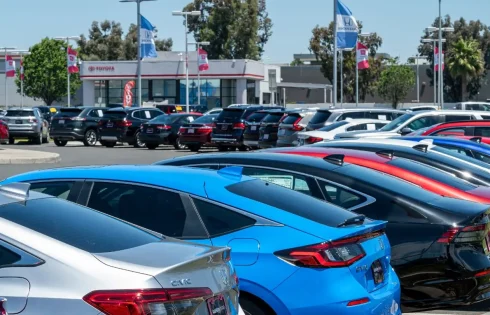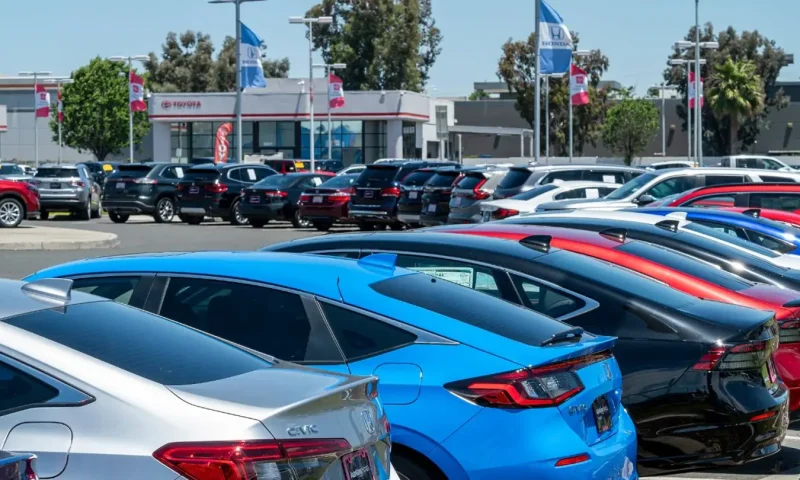
U.S. retail sales rose more than expected in March as consumers frontloaded big-ticket purchases to get ahead of anticipated tariff-induced price hikes.
The Commerce Department released its data for March on Wednesday, which showed retail sales increased 1.4% on a monthly basis, a bigger gain than the forecast of a 1.3% rise that was projected by LSEG economists.
When excluding vehicle purchases, retail sales were up 0.5% in March, which also surpassed the 0.3% estimated by LSEG’s poll of economists.
President Donald Trump’s 25% tariffs on imported cars and trucks took effect in early April, which industry analysts and manufacturers warned would significantly raise motor vehicle prices.
Motor vehicle manufacturers reported a big jump in auto sales in March, attributed by some to a rush by buyers “to try and beat the tariffs.”
The report showed that sales by motor vehicle and parts dealers were up 5.3% in March from a month ago and 8.8% from the same month a year ago.
“Faced with extreme uncertainty, consumers rushed to buy durable goods in March to avoid price hikes from steep tariff increases,” said EY senior economist Lydia Boussour.
“Indeed, the biggest jump in car purchases in over two years and robust spending on other goods such as building materials, sporting goods and electronics point to some pulling forward of purchases of big-ticket items,” Boussour added. “But with the economy set to cool sharply in the coming months as tariffs take their toll, price-sensitive consumers are poised to become more judicious with their spending and reduce their non-essential purchases.”
Comerica chief economist Bill Adams said that it’s “hard to feel good about Americans panic buying cars as consumer confidence craters.”
“The economic outlook is in flux with large changes to trade policy nearly every day. Businesses selling cars, appliances, and electronics are likely to see less demand in the next month or two as panic buying ends. The tariff whiplash will make retail sales volatile in the near term, and also make real GDP very noisy,” Adams said.

